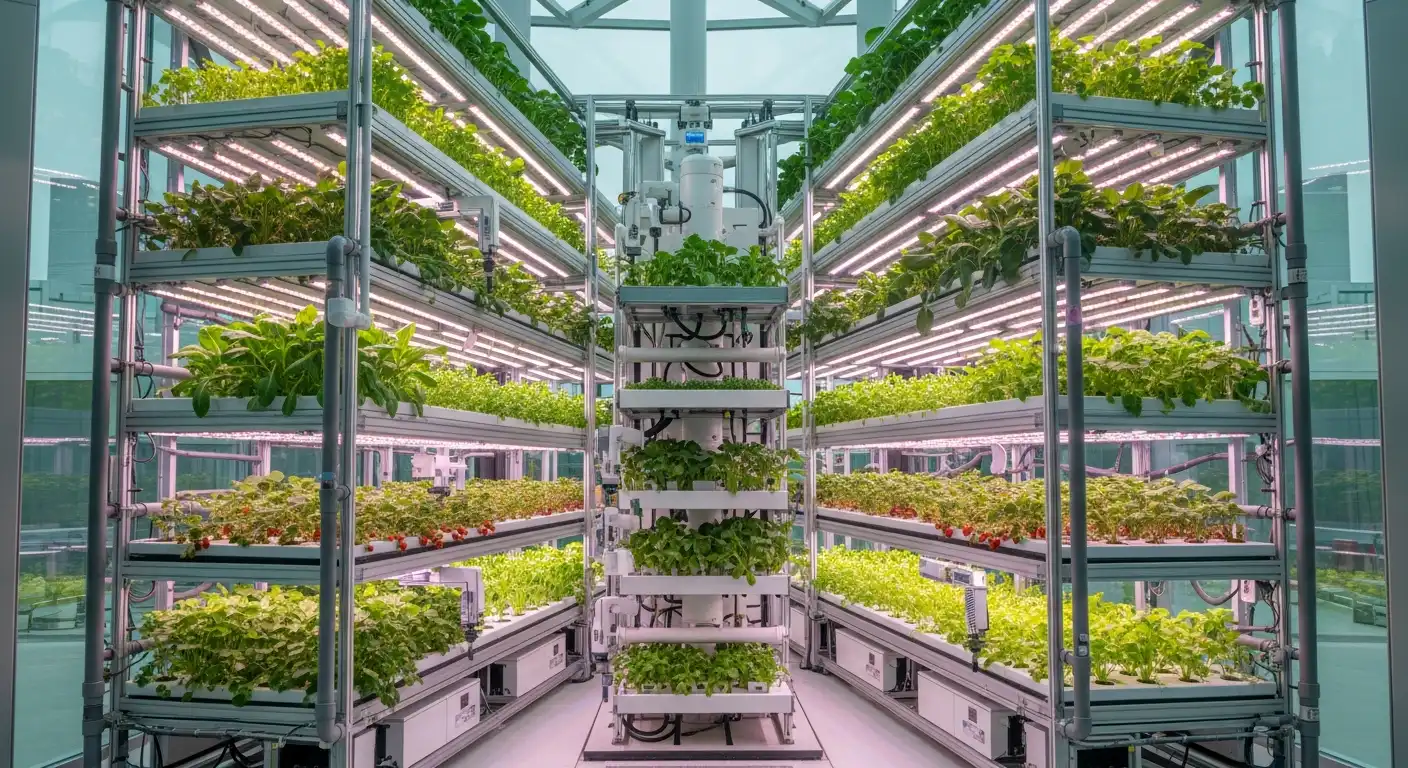In the dynamic realm of agriculture and sustainability, urban vertical farming emerges as a pioneering solution to our growing food and environmental challenges. This innovative approach invites us to reflect upon its potential to reshape our food systems, its implications for urban living, and the wisdom needed to navigate this transformative agricultural frontier.
Urban vertical farming challenges traditional notions of agriculture, transcending the constraints of arable land availability. It prompts us to envision a world where food is grown in vertically stacked layers within urban environments. This innovation reminds us that ingenuity knows no bounds and that necessity breeds innovation. Wisdom calls us to embrace this potential, recognizing that vertical farming could revolutionize food production and provide sustainable, locally sourced food to urban populations.
The integration of urban vertical farming underscores the importance of resource efficiency. It utilizes space, water, and energy more efficiently than conventional farming. This approach encourages us to think sustainably, optimizing our resource utilization while minimizing waste. Wisdom reminds us that stewardship of resources is an ethical responsibility, and urban vertical farming offers a pathway to a more sustainable and environmentally conscious future.
However, with the promise of vertical farming comes the responsibility to address challenges such as energy consumption, initial investment costs, and community acceptance. Wisdom calls for careful consideration and collaborative efforts to overcome these challenges. It reminds us that progress requires perseverance and a willingness to learn and adapt. Urban vertical farming offers an opportunity to iterate and improve, demonstrating the wisdom of embracing challenges as learning experiences.
Urban vertical farming also emphasizes the importance of food security and accessibility. It has the potential to bring fresh, locally grown produce closer to communities, reducing the carbon footprint associated with transportation. Wisdom implores us to view food as a fundamental human right and strives for a world where everyone can access nutritious and sustainably grown food. It reminds us that addressing food security is not just a matter of practicality but a moral imperative.
Moreover, urban vertical farming inspires a sense of community and shared responsibility. It fosters a connection between city dwellers and the food they consume, promoting awareness of the food production process. Wisdom calls for fostering a culture of mindful consumption and gratitude, recognizing the effort and resources required to produce our food. It advocates for a shift towards appreciating the value of food and the interconnectedness of our actions.
As we venture into the promising landscapes of urban vertical farming, wisdom beckons us to navigate this path with a holistic and compassionate perspective. It encourages us to embrace the transformative potential of vertical farming while acknowledging the delicate balance between innovation and responsibility.
Urban vertical farming is a beacon of hope, a glimpse into what is possible when we combine human intellect with environmental consciousness. Wisdom invites us to tread this path with mindfulness, determination, and a profound respect for our planet’s well-being and the nourishment it provides.





